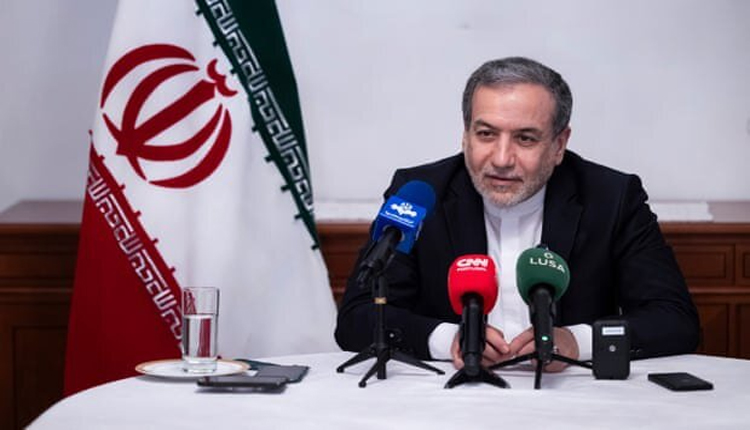Geneva: Tensions are rising regarding Iran’s program, as Tehran has given a caution to European countries. They have warned of altering their stance if more measures are imposed against them at the United Nations Security Council (UNSC). The caution is delivered before a meeting scheduled for November 29 in Geneva involving Iran and the three European nations. Britain, France, and Germany. Often referred to as E3.
Iran’s Deputy Foreign Minister Abbas Araghchi emphasized Tehran’s position regarding changes to its strategy in response to new sanctions being enforced once again by European nations through the UNSC process as he talked to journalists recently. Araghchi subtly suggested that discussions at the level in Tehran might start gravitating towards considering the development of weapons if such sanctions are reinstated. In an interview with The Guardian, he stated,Should European nations opt to reapply sanctions via the UNSC route? It could prompt a shift in the deliberations within our country towards contemplating the pursuit of capabilities.”
Araghchi highlighted that the nonproliferation approach adopted by Tehran in the past has been deemed inadequate in halting the increasing scrutiny it faces now. The upcoming meeting in Geneva is seen by Araghchi as an opportunity for discussions where Tehran’s dedication to finding solutions to the deadlock is underlined.
Tensions have heightened between Iran and the international community following the resolution by the International Atomic Energy Agency’s (IAEA)’ Board of Governors condemning Iran’s nuclear program activities. In response to this criticism from authorities, Iran is reported to have ramped up its nuclear enrichment operations by launching activities at various facilities as a countermeasure.
As per a report from Reuters that references an IAEA update, Iran has communicated to the watchdog its intention to introduce uranium feedstock into the eight IR‐5 centrifuge configurations at Fordow for enrichment up to 5% purity levels. Moreover, Iran has officially informed the IAEA about its scheduled trials of cascading systems involving IR‐3, IR‐5, and IR‐1 centrifuges at the Pilot Fuel Enrichment Plant (PFEP) in Natanz. Experts caution that these actions could potentially bring Tehran closer to the production of uranium for weapons-grade purposes.
In the updates on the matter at hand, Iran announced its plan to establish six sets of cascades that have the ability to function separately or in conjunction with one another, generating uranium with a purity of up to 5%. These advancements have sparked apprehension, indicating a potential avenue for Tehran to bolster its nuclear capacities under the pretext of scientific exploration and innovation.
Iran’s Reaction to Criticism, by IAEA
Iran’s top official, in charge of atomic energy issues, shed light on progress in the country’s program. Mohammad Eslami stated that Iran has initiated the introduction of gas into centrifuges as a step forward in its nuclear initiatives.This move was justified as a reaction to what Iran perceives as a criticism in the IAEA resolution.
“Everything we’re currently putting into action is a part of our nuclear industry growth initiative,” mentioned Eslami confidently while emphasizing that these steps align perfectly with Tehran’s strategic objectives. Nevertheless, analysts point out that speeding up the uranium enrichment procedures might bring Iran nearer to developing weapons—a matter of concern raised by security experts worldwide.
What comes after this?
The upcoming conference in Geneva will serve as a test to see whether diplomatic discussions have the power to overcome the deadlock situation between nations involved in the talks. The stakes are significant as the E3 is striving to prevent Iran from making any progress in its program while Tehran is pushing for sanctions relief and acknowledgment of its sovereignty.Any breakdown in negotiations could potentially result in a round of sanctions. Increased tensions across the Middle East.
The question persists about whether Iran’s warnings are an approach to negotiations or an indication of its willingness to advance toward nuclear weapons capacity, a situation that could unsettle the region and revive concerns about global security.



Comments are closed.